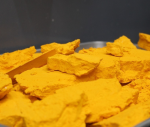You are here
Amman likely to keep a cool head in S. Arabia-Iran crisis — analysts
By Khetam Malkawi - Jan 07,2016 - Last updated at Jan 07,2016
AMMAN — Although Jordan is historically known for its ability to maintain balance in its ties with the rest of the world and a moderate foreign policy, especially at times of regional crises, local observers differed on how far Jordan can go in its pro-Saudi, anti-Iran stands against the backdrop of the snowballing crisis between the two regional foes.
Relations between Saudi Arabia and Iran have deteriorated recently, following Riyadh's execution of Shiite cleric Nimr Al Nimr early this week.
In response, protesters in Iran attacked the Saudi embassy in Tehran, leading Riyadh to cut diplomatic relations with Tehran.
Several Arab and Islamic countries backed the Saudis and ended or reduced their diplomatic relations with Tehran.
However, five days after this incident, Jordan summoned Iran’s ambassador in Amman to officially inform Tehran of Jordan’s denunciation of Iran’s interference in regional countries’ affairs, especially those of Saudi Arabia.
A Foreign Ministry official hinted that stronger stands might be taken in the future, stopping short of stating whether severing diplomatic ties is an option.
For political analysts, if Amman decided to sever these relations, the impact would not be that grave, as the country’s interests with Iran are limited in terms of economy, politics and even tourism, bearing in mind that Jordan, out of caution, has for years blocked Iranian attempts to send pilgrims to shrines revered by Shiite Muslims.
“There are common interests between Jordan and Iran, albeit limited, but of course, our interests with Saudi Arabia and the rest of the Gulf countries far outweigh those with Iran,” veteran political analyst Saleh Qallab said.
For Qallab, the Kingdom’s position on Iran’s policies and behaviours is justified “as Jordan is sure that Tehran interferes in all Arab countries, not only Iraq, Syria, Lebanon, Yemen and the GCC, but also the Maghreb countries”.
“Tehran has been implementing a plan since the 1979 revolution seeking a stronger foothold in the region.”
However, Qallab, a former media minister, said Jordan’s next step regarding its relations with Iran will be decided based on the outcome of the Arab League meeting on Sunday.
Other analysts believe that Jordan would play a “mediator” in this crisis and try to ease the tension between Riyadh and Tehran.
“Jordan maintains balanced relations with Iran and might play this role,” said Jihad Momani, a political analyst and former senator.
Momani agrees with Qallab that common interests between Jordan and Iran do not rise to the level of those between the two Arab kingdoms. “However, I do not expect that the country would reach the point where it completely ends its diplomatic ties with Tehran unless the latter escalates the tension with Saudi beyond sense.”
“Being a country that invests in stability and peace, Jordan would even intervene to prevent any such escalation in the current crisis.”
Politically, he added, Jordan is in an alliance with the GCC countries in the war against terrorism and the campaign aimed at restoring legitimacy in Yemen, along with economic and other strategic interests in the GCC.
Thus, the Kingdom would never compromise its relations with the Gulf, according to Momani.
Al Rai columnist Sultan Hattab said summoning the Iranian ambassador was a clear message to Iran, but the Kingdom might wait for the Arab League Sunday’s meeting before stiffening its stand in the crisis.
For Nabil Ghishan, former Editor in Chief of Al Arab Al Yawm daily, the Arab League might not take a drastic decision, simply because countries like Iraq, Lebanon and Algeria will not back it.
“All that Arabs will ask from Iran is to behave as a state rather than a revolutionary movement,” Ghishan argued, adding that the US is also not in favour of such mounting tension as Washington “wants the region to focus on the war against Daesh”.
In all cases, the analysts agreed, whatever escalation the Saudi-Iranian crisis might see, Jordan would always want calm, stability, respect of the diplomatic rules and focus on what is in the best interest of the region’s peoples.
Related Articles
Jordan's participation in the Saudi Arabia-led coalition against the Houthis in Yemen came as a response to a call made by the legitimate president of Yemen, Foreign Minister and Deputy Prime Minister Nasser Judeh said Thursday.
ABU DHABI — Saudi Arabia may take further measures against Iran after cutting ties with its regional rival this week, the Saudi foreign mini
AMMAN — The Senate Media and National Guidance Committee on Sunday held a meeting to discuss issues related to the press.Senate President Fa
















